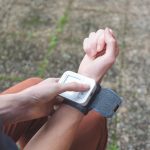Boosting omega-3 fatty acids could help lower inflammation, fatty liver disease
Researchers at Laval University in Quebec, Canada, have conducted a study that offers exciting insights into how genetically enhancing omega-3 fatty acid production can...
Adults with ADHD at higher risk for dementia, shows Rutgers study
A recent study conducted by Rutgers University has shed light on a concerning link between Attention-Deficit/Hyperactivity Disorder (ADHD) and dementia risk in adults.
The study,...
9 in 10 people with high blood pressure may need stronger treatment, study finds
High blood pressure, also known as hypertension, is a common health issue affecting millions of people worldwide. It's a condition where the force of...
Immersive virtual reality eases pain and distress in people with cancer
A new analysis of pooled data suggests that immersive virtual reality (VR) technology may help alleviate pain and distress experienced by patients with cancer...
Why hot red meat is bad for your heart health
From the culinary expertise of MasterChef to the competitive flair of My Kitchen Rules (MKR), chefs worldwide have shared their secrets for grilling, barbecuing,...
Scientists develop new precision tool for cancer surgery
The surgical removal of tumors while preserving healthy tissue is a complex task that often relies on the surgeon's judgment.
A team of researchers from...
People who take high blood pressure medications have lower dementia risk, study finds
A new study has found that taking blood pressure medications, known as antihypertensives, may reduce the risk of dementia in older adults who have...
Dementia takes a toll on finances and family care, study finds
Dementia, often associated with cognitive decline, not only affects a person's mental health but also exerts a significant financial and caregiving burden on individuals...
Common prescription drug could reduce bowel diseases symptoms
A groundbreaking study has revealed that a widely available and cost-effective prescription drug, amitriptyline, can significantly improve symptoms of irritable bowel syndrome (IBS) in...
Scientists find link between antacid drugs and dementia
Researchers at Copenhagen University Hospital and Aarhus University in Denmark have explored the potential connection between proton pump inhibitors (PPIs), commonly used antacid medications...










